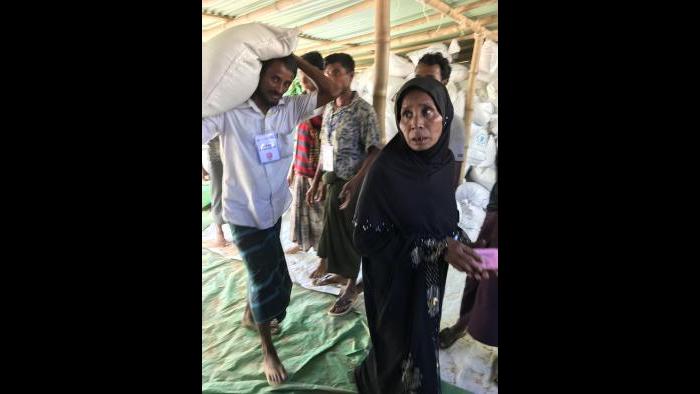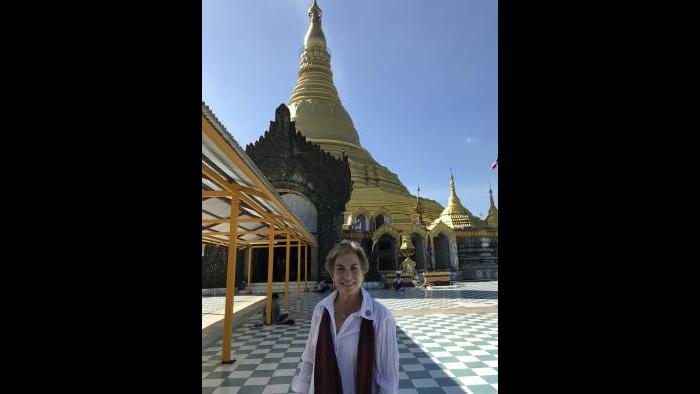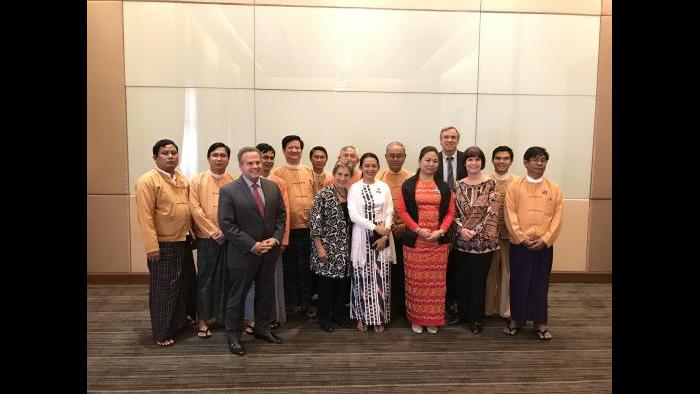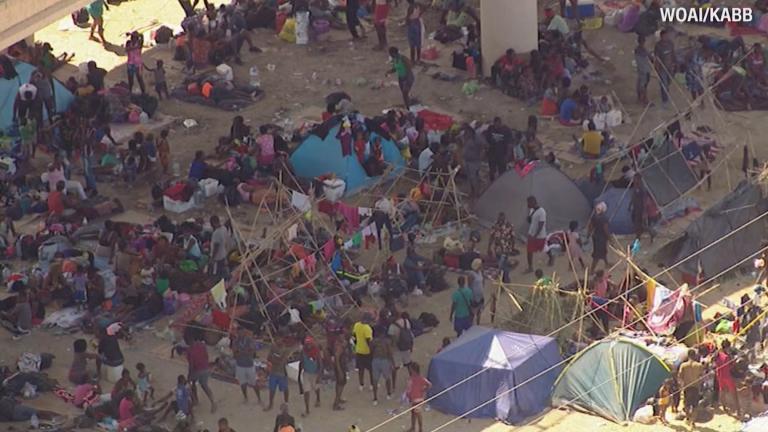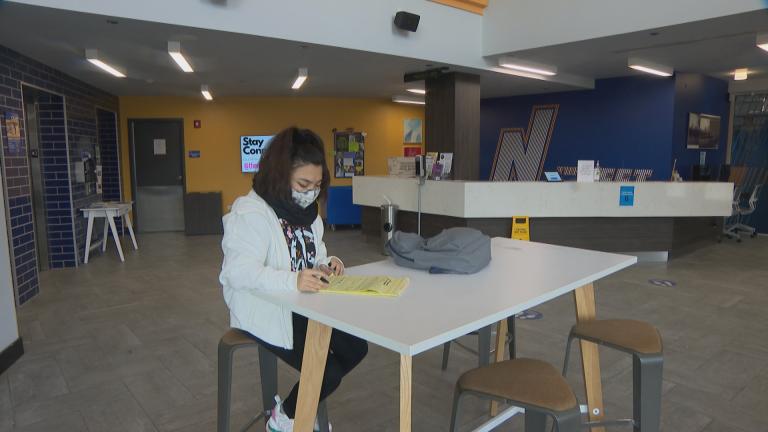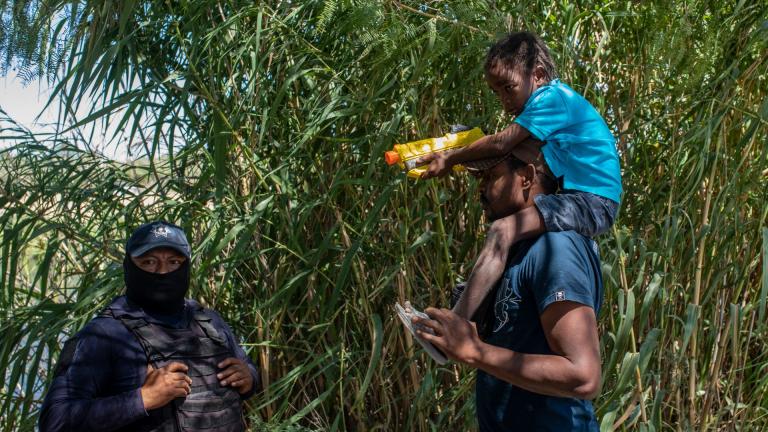The U.N. says they are the most persecuted ethnic group in the world.
More than a million Rohingya Muslims have been forced to flee Myanmar in Southeast Asia as a result of what the U.S. is calling “ethnic cleansing” and others are calling genocide. A majority of the Rohingya who have made their way to the U.S. are in Chicago and the Midwest.
In many ways, Hasan is a typical Chicago high school student. The 14-year-old is the captain of his club soccer team.
He attends Sullivan High School in Rogers Park, and has a close-knit group of friends.
But Hasan’s new life is the result of a harrowing escape from his home region of the Rakhine state in Myanmar, formerly known as Burma. He says the Burmese military burned his village down, forcing him his family to flee for their lives.
“They burned our house,” he said. “They killing Muslim people.”
He says he has not seen or heard from any of his family since.
“I lost my whole family. It’s like, wherever we go, we run, and we just don’t know.
Hasan is one of dozens of Rohingya students in the Chicago Public Schools system with similar stories. Salamat, 19, says his parents arranged for his escape from Myanmar but could not afford to leave themselves. Like Hasan, he came here through the United Nations’ refugee program. He worked at O’Hare International Airport and says he’s sent all of his earnings back to his parents.
“I am sending money to them, so I hope they will be safe,” Salamat says.
He says he’s able to talk to them online every day, and they are in constant fear of the Buddhist Burmese military, which has systematically forced Rohingya out of the country.
“They call us terrorists. They kill everyone, every children, every woman, they fire into the home.”
If Salamat and Hasan are dealing with the after-effects of post-traumatic stress, it certainly doesn’t show. When asked if he still struggles with the memories of what happened, Hasan says, “maybe not.”
“I think about my family in my head. But here I can learn and go to school.”
Sullivan High School has a large refugee population. Assistant principal Matt Fasana says administrators regularly care for kids who have experienced traumatic events.
“The teachers are trained to see trauma and respond appropriately,” he said. “Even the little things tip them off, a kid is normally talking and experiencing, and then all of a sudden, not … that’s a red flag.”
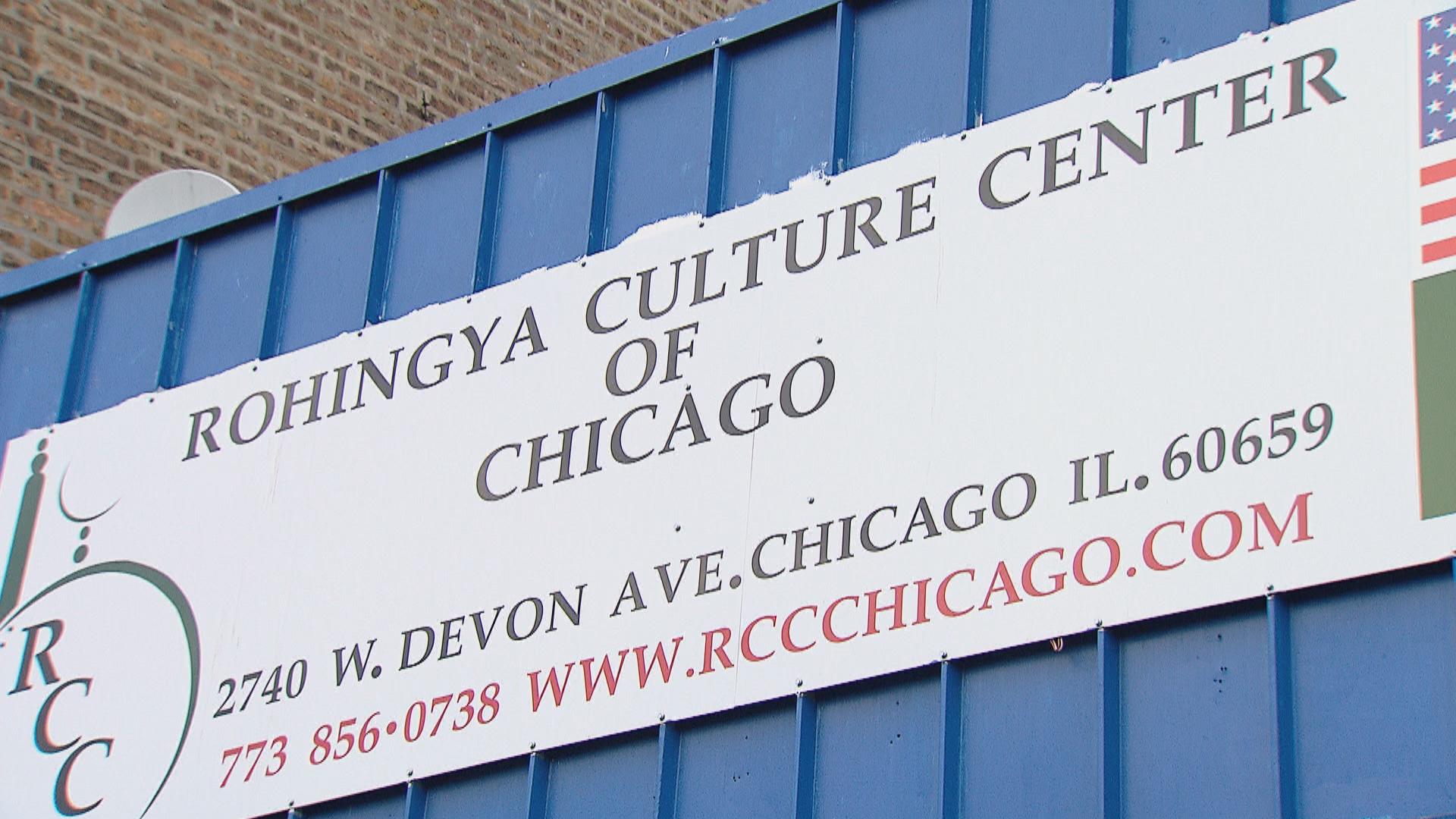
Students can also get support at the Rohingya Culture Center on Devon Avenue. It bills itself as the only such center of its kind in the country.
“We bring our culture here,” said the center’s administrator, Nasir Zakaria. “They take away our culture in Burma, so this is … we make our village, wedding together here, learn each other, talk each other, so we find out what we want to do for future.”
Zakaria was one of hundreds of thousands of Rohingya that originally fled to Bangladesh. He then traveled to Thailand and Malaysia before coming to Chicago as a refugee. He says he landed a job as a dishwasher at Rivers Casino before becoming the full-time administrator of the center, and says there are few people that love and appreciate their new country more than the Rohingya.
“Chicago, it’s amazing. Life in Chicago, right now we are free. What does it mean? It’s freedom. It’s human rights.”
The Culture Center says there are more than 1,500 known Rohingya living in Chicago—the highest Rohingya population of any city in the country. It offers free English classes and help assimilating to American life. But the optimism the Chicago Rohingya feel is counterbalanced by the constant fear of what’s happening in Myanmar.
“I’m always worried, every day. I’m worried about my family,” Zakaria said. “I’m worried about everyone. Today they are alive. Tomorrow, I don’t know if they are alive or not.”
Nasir says the Rohingya have always had a tenuous relationship with the ruling Buddhist majority in Myanmar, but the conflict escalated in 2012. Now, Rohingya are not recognized as citizens. Nasir says the Rohingya had hoped that the current leader, Aung San Suu Kyi, a former political prisoner who won the Nobel Peace Prize, would focus on human rights. But the plight of the Rohingya has only gotten worse under Suu Kyi, which has caused widespread condemnation from world leaders who describe it as “ethnic cleansing.”
“Myanmar doesn’t want them there,” said Democratic U.S. Rep. Jan Schakowsky. “They are the largest stateless ethnic group in the world. In the Rakhine province, they are living in concentration camps.”
Schakowsky traveled to Myanmar and says the U.S. and U.N. need to pressure Suu Kyi to end the crisis.
Nasir says Suu Kyi had enthusiastic support from the Rohingya, and she has let them down.
“My heart is broken for her. From heart, I want to say, she is a liar, number one. She don’t have any justice. She is joined to military together. So she support ethnic cleansing and genocide of our people.”
Schakowsky and Sen. Dick Durbin recently visited the Rohingya Culture Center to promise a more active role from the United States in addressing the crisis. But for now, the Rohingya focus on building their lives in Chicago.
Salamat says he wants to be a pilot one day. Hasan wants to continue to improve at soccer. All of the Rohingya students struggle to live a normal life, with the specter of “ethnic cleansing” in their native country weighing heavily on their minds.
![]()
Students at UIC and DePaul will provide mental health support to the Rohingya Culture Center thanks to a $50,000 grant from the Patient Centered Outcomes Research Institute. Milwaukee and Fort Wayne also have large Rohingya populations. Secretary of State Rex Tillerson has said the U.S. should consider sanctions against Myanmar.
Follow Paris Schutz on Twitter: @paschutz
Related stories:

Oct. 3: Author and Northwestern University professor Wendy Pearlman interviewed more than 300 refugees for a new book of oral histories, “We Crossed a Bridge and It Trembled.” She joins us in discussion.
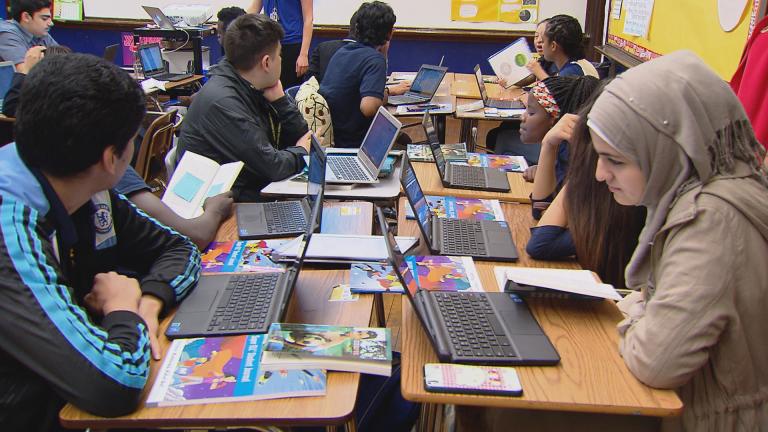 How One Chicago Public High School is Embracing Refugee Students
How One Chicago Public High School is Embracing Refugee Students
May 22: Nearly 40 countries are represented at Sullivan High School in Rogers Park. We meet the head of the school’s English language program – and the reporter who recently wrote about the school.
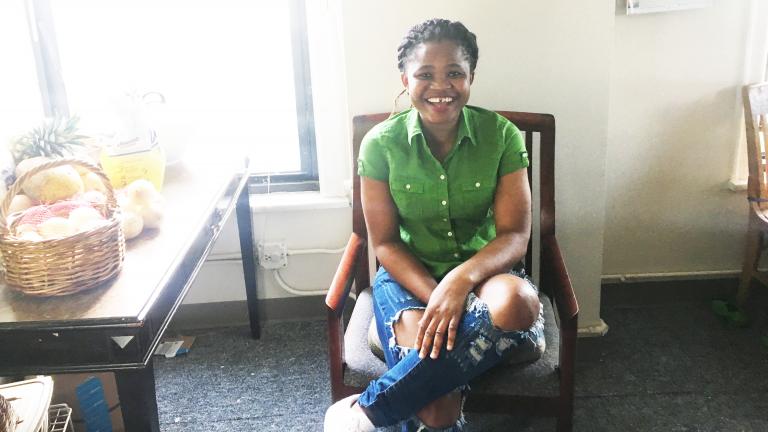 Hyde Park Home an Alternative to Detention for Refugees, Asylum Seekers
Hyde Park Home an Alternative to Detention for Refugees, Asylum Seekers
June 5: The Marie Joseph House of Hospitality for Women in Hyde Park houses 10 asylum seekers and refugees. Thanks to a unique partnership with ICE, women who would otherwise be in detention facilities live in the co-op style home.


